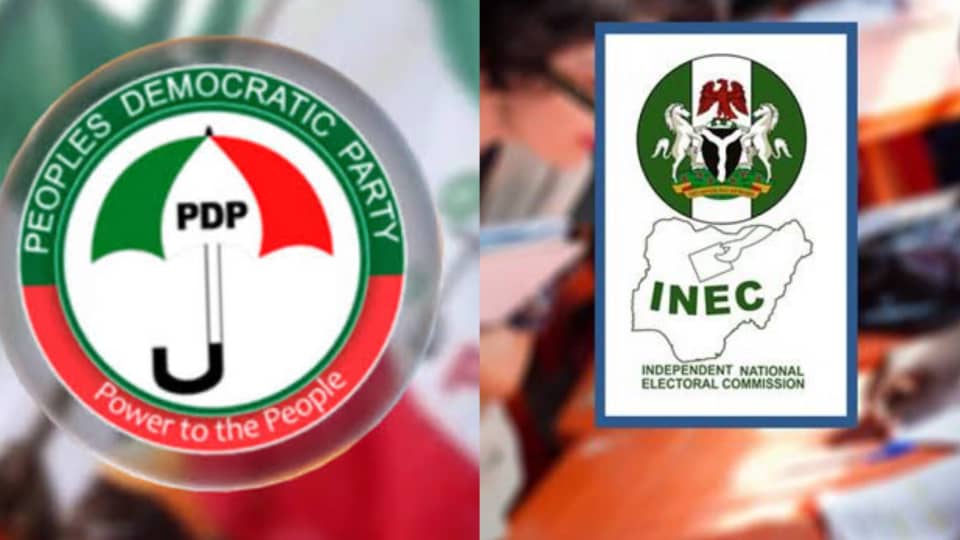- Safiu Kehinde
The Osun State Chapter of the Peoples Democratic Party (PDP) has accused the Independent National Electoral Commission (INEC) of manipulating the voter registration figure at the ongoing nationwide Continuous Voter Registration (CVR).
As contained in a statement issued by the Osun PDP Director of Media, Hezekiah Bamiji, the party questioned the wide disparity between the number of online pre-registrants and those who have completed the mandatory in-person registration exercise in Osun State.
According to INEC’s figures, over 470,000 Nigerians in Osun State have reportedly commenced their registration online within two weeks.
The PDP however claimed that less than 600 registrants were recorded to have completed the in-person process as at the time of the Commission’s report.
This according to the party is a worrisome gap that raises serious questions about the transparency, credibility, and efficiency of the registration process.”
“It is unacceptable for INEC to continue to churn out figures without creating a verifiable and transparent process for political parties and stakeholders to monitor, so much so that the exercise is afterall, mainly to allow Nigerian citizens to participate in the electoral process and not any personal or rocket sciences.
“Beyond being a mere statistical error, the deliberate under-reporting of Osun’s CVR figure raises serious questions about the credibility of INEC’s data management.
“How could over 25,000 duly completed registrations physically captured by INEC officials across Osun suddenly shrink to just 500 registrations in the national office’s report?
“Such a gaping disparity cannot be waved aside as a clerical mistake.
“It is inconceivable and unacceptable that Osun, a state where daily averages of 1,500 to 2,000 voters complete their in-person registration, would be falsely presented with only 500 completed registrations for the entire reporting period.
“This contradiction directly insults the intelligence of the electorate and dangerously undermines confidence in the commission’s preparedness for the August 2026 governorship election as well as 2027 general election.” the statement partly read.
The PDP demanded that INEC immediately correct this manipulated data, publish the authentic Osun figure of 25,000+ completed registrations without delay, and explain why such a wide gulf exists between field records and the national report.
It held that anything short of this is nothing but a calculated attempt to disenfranchise Osun citizens and lay a foundation for electoral fraud, which the party and the people will never tolerate.
“How do we reconcile nearly half a million online registrants with barely half a thousand completing their registration physically? This inconsistency must be explained with verifiable and traceable evidence,” the statement read.
As highlighted in the statement, the PDP further demanded that INEC in Osun State must:
“Provide daily detailed reports of completed registrations, including Voter Card transfer applications received and processed by the commission across all designated centres to accredited political party representatives as well as Civil Society Organizations(CSOs)
“Open up the registration process to independent scrutiny by stakeholders to ensure that no figures are manipulated or exaggerated for possible fraudulent motives.
“Guarantee proper record keeping and transparency from registration through to the printing and issuance of Permanent Voter Cards (PVCs).”
The PDP warned that failure to make the process more open and accountable could erode public confidence in the Commission’s ability to conduct free, fair, and credible elections in Osun State.
It also stressed the need for INEC to make public the source points and records of voter card transfers within or from any other part of the country to Osun State, insisting that such disclosures are essential for transparency.
“It is not enough for INEC to dump figures on Nigerians without giving room for authentication and verification.
“Our democracy demands openness, and Osun PDP will continue to insist on transparency in the voter registration process as the foundation of credible elections.” The statement concluded


